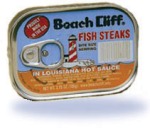 The book of Proverbs ends with a flourish as does the book of Psalms. With Psalms the finale is a crescendo of music, every instrument in the band praising the Lord. But with Proverbs, the final chapter tells about the perfect woman. In fact, she is a complete, or “A” to “Z” woman because verses 10 through 30 are written in alphabetic acrostic, each verse beginning with the following letter of the Hebrew alphabet.
The book of Proverbs ends with a flourish as does the book of Psalms. With Psalms the finale is a crescendo of music, every instrument in the band praising the Lord. But with Proverbs, the final chapter tells about the perfect woman. In fact, she is a complete, or “A” to “Z” woman because verses 10 through 30 are written in alphabetic acrostic, each verse beginning with the following letter of the Hebrew alphabet.
The Hebrew term eset hayil (“worthy woman” or “excellent wife” or “wife of noble character”) is used in Proverbs 31 and immediately following in Ruth. In the original Hebrew the books of the Bible are in different order than we are used to, and the book of Proverbs leads—not accidentally—into Ruth, the story of another eset hayil.
Ruth, the Moabite from that hated country across the river Jordan, leaves the land of Moab to follow her mother-in-law Naomi, even though Ruth is recently widowed. In the famous phrase “Whither thou goest, I will go; and where thou lodgest, I will lodge: thy people shall be my people, and thy God my God” she effectively converts from paganism to Judaism in one of the prominent examples of a Gentile “wild olive branch” becoming grafted into the Hebrew olive tree. In a later scene she is called a woman of noble character, or eset hayil, by Boaz, the man who would become her new husband (Ruth 3:11). Ruth and Boaz become great-grandparents of David, the greatest of the Israelite kings and the founder of a dynasty that leads to the Messiah.
So don’t forget Mothers’ Day. It all starts with them and you never know where it can lead.
Proverbs 31:10-30 (NIV)
10 A wife of noble character who can find? 
She is worth far more than rubies.
11 Her husband has full confidence in her
and lacks nothing of value.
12 She brings him good, not harm,
all the days of her life.
13 She selects wool and flax
and works with eager hands.
14 She is like the merchant ships,
bringing her food from afar.
15 She gets up while it is still dark;
she provides food for her family
and portions for her servant girls.
16 She considers a field and buys it;
out of her earnings she plants a vineyard.
17 She sets about her work vigorously;
her arms are strong for her tasks.
18 She sees that her trading is profitable,
and her lamp does not go out at night.
19 In her hand she holds the distaff
and grasps the spindle with her fingers.
20 She opens her arms to the poor
and extends her hands to the needy.
21 When it snows, she has no fear for her household;
for all of them are clothed in scarlet.
22 She makes coverings for her bed;
she is clothed in fine linen and purple.
23 Her husband is respected at the city gate,
where he takes his seat among the elders of the land.
24 She makes linen garments and sells them,
and supplies the merchants with sashes.
25 She is clothed with strength and dignity;
she can laugh at the days to come.
26 She speaks with wisdom,
and faithful instruction is on her tongue.
27 She watches over the affairs of her household
and does not eat the bread of idleness.
28 Her children arise and call her blessed;
her husband also, and he praises her:
29 “Many women do noble things,
but you surpass them all.”
30 Charm is deceptive, and beauty is fleeting;
but a woman who fears the LORD is to be praised.
31 Give her the reward she has earned,
and let her works bring her praise at the city gate.
Read Full Post »
 I always choke up when I hear this song.
I always choke up when I hear this song.






